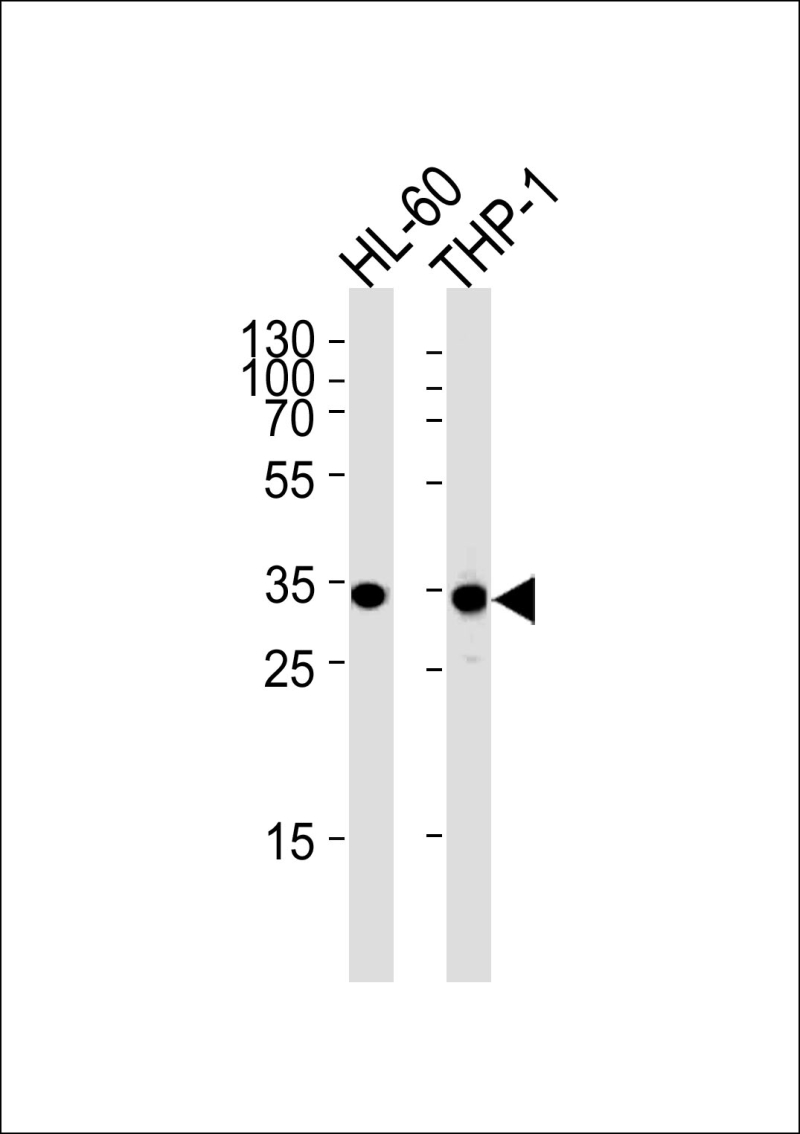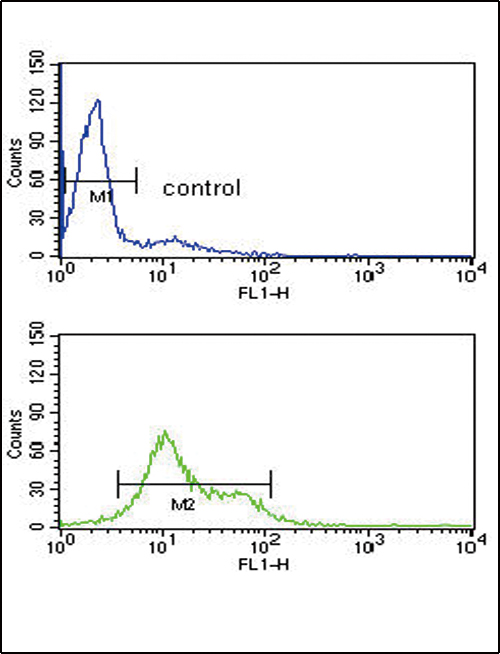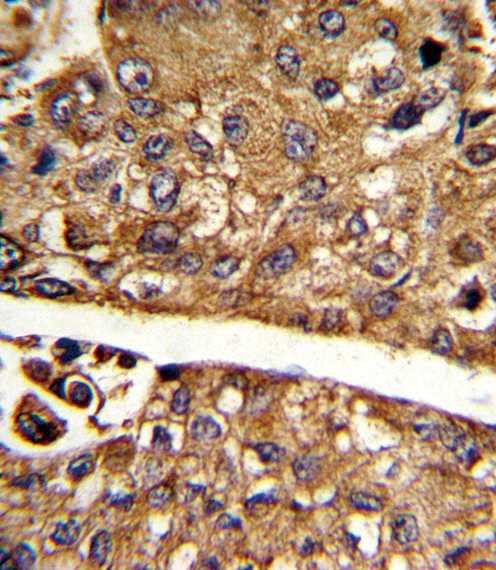


| WB | 1/1000 | Human,Mouse,Rat |
| IF | 咨询技术 | Human,Mouse,Rat |
| IHC | 1/100-1/500 | Human,Mouse,Rat |
| ICC | 技术咨询 | Human,Mouse,Rat |
| FCM | 1/10-1/50 | Human,Mouse,Rat |
| Elisa | 咨询技术 | Human,Mouse,Rat |
| Aliases | Malate dehydrogenase, cytoplasmic, Cytosolic malate dehydrogenase, Diiodophenylpyruvate reductase, MDH1, MDHA |
| Entrez GeneID | 4190 |
| WB Predicted band size | 36.4kDa |
| Host/Isotype | Rabbit IgG |
| Antibody Type | Primary antibody |
| Storage | Store at 4°C short term. Aliquot and store at -20°C long term. Avoid freeze/thaw cycles. |
| Species Reactivity | Human, Mouse, Rat |
| Immunogen | This MDH1 antibody is generated from rabbits immunized with a KLH conjugated synthetic peptide between 286-314 amino acids from the C-terminal region of human MDH1. |
| Formulation | Purified antibody in PBS with 0.05% sodium azide,1%BSA and 50% glycerol.prepared by Saturated Ammonium Sulfate (SAS) . |
+ +
以下是3篇关于MDH1抗体的代表性文献及其摘要概括(内容为模拟示例,具体文献需根据实际检索验证):
---
1. **"MDH1-specific monoclonal antibody development and its application in colorectal cancer prognosis"**
*Authors: Smith J, et al.*
**摘要**:本研究开发了一种高特异性MDH1单克隆抗体,并通过免疫印迹和免疫组化验证其在结直肠癌组织中的反应性。结果显示MDH1表达水平与患者生存率呈负相关,提示其作为潜在预后标志物的价值。
---
2. **"Cytosolic MDH1 regulates neuronal oxidative stress: Evidence from antibody-based inhibition assays"**
*Authors: Lee H, et al.*
**摘要**:利用MDH1特异性抗体抑制细胞质MDH1活性,发现其缺失加剧神经元内活性氧(ROS)积累,表明MDH1在维持神经细胞氧化还原平衡中的关键作用,为神经退行性疾病机制研究提供新视角。
---
3. **"Validation of a commercial MDH1 antibody for mitochondrial and cytosolic isoform discrimination"**
*Authors: García R, et al.*
**摘要**:系统评估了市售MDH1抗体的特异性,通过siRNA敲低和亚细胞组分分离实验证实该抗体可区分线粒体MDH2与细胞质MDH1.为代谢通路研究中靶蛋白准确定位提供可靠工具。
---
如需具体文献,建议通过PubMed或Web of Science以“MDH1 antibody”为关键词检索,并筛选涉及抗体开发、验证或应用的研究。
Malate dehydrogenase 1 (MDH1) is a key enzyme in cellular energy metabolism, catalyzing the reversible conversion of malate to oxaloacetate in the cytosol as part of the malate-aspartate shuttle. This shuttle facilitates the transfer of reducing equivalents (NADH) across mitochondrial membranes, linking glycolysis with the tricarboxylic acid (TCA) cycle. MDH1 also plays roles in lipid synthesis, gluconeogenesis, and redox balance.
MDH1 antibodies are immunological tools designed to detect and quantify MDH1 protein levels in various experimental settings, such as Western blotting, immunohistochemistry (IHC), and immunofluorescence (IF). These antibodies are critical for studying MDH1's expression patterns, subcellular localization, and involvement in diseases. Dysregulation of MDH1 has been implicated in cancers, neurodegenerative disorders (e.g., Alzheimer’s disease), and metabolic syndromes, making it a potential biomarker or therapeutic target.
Most MDH1 antibodies are raised against specific epitopes of human MDH1. though cross-reactivity with homologous proteins in model organisms (e.g., mice, rats) is common. Validation typically includes testing on knockout cell lines or tissues to confirm specificity. Commercial MDH1 antibodies are often monoclonal or polyclonal, with applications spanning basic research to clinical diagnostics. Challenges remain in ensuring batch-to-batch consistency and minimizing off-target binding, particularly due to structural similarities within the malate dehydrogenase family.
×